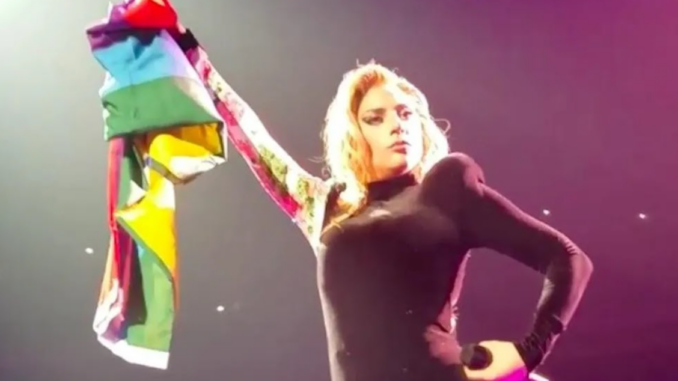
By Rami Mansi
Pop music and the queer community have a striking resemblance to each other. The associations between pop music and the queer club scene have been the foundations of pop music within queer communities, even after we found solace in other clauses.
During the 2002 BRIT Awards, Kylie Minogue invented homosexuality when she came out as a larger-than-life CD player and started singing her signature song “Can’t Get You Out Of My Head.” Following other queer icons such as Madonna, Whitney Houston, and Cher,
Minogue cemented herself as an experimental artist and was unofficially deemed the first new pop star of the 21st century.
Songs like the aforementioned, “Can’t Get You Out Of My Head,” were created to be an invitation to get on the dancefloor; that happened as 22 years later gay clubs recognized the hit song as a timeless classic. Queer spaces, such as queer-owned cafes, have only recently come out and joined the mainstream. Prior, the only popular destination for queer fun was the club scene. Reveling in the glitz and glamor of pre-social media fashion and the musical enjoyment of disco and pop, artists gladly leaned into the sound that made them the pop stars of today.
Pop music has been frowned upon by other genres due to its mainstream success and its occasional redundancy. Female pop stars have been severely under-protected by the music industry yet overpoliced and criticized by the public.
From judging women’s bodies on magazine covers, deep-diving into their relationships and personal matters, and controlling and limiting the singer’s creativity yet reprimanding her when the song doesn’t perform well on the charts, these are just some of the greater things female pop stars are overpoliced on.
Queer people tend to relate to singers more often no matter the genre due to the viable reliabilities, yet pop stands out as a mainstream choice for queer people, specifically people who predominantly express femininity.
Femininity takes a human form in female pop stars. Madonna in “Like A Virgin,” Lady Gaga in “Heavy Metal Lover,” and Beyonce in “Alien Superstar,” are just some small but mighty examples of pop’s potential to exude femininity. Hearing powerful songs empowers listeners to live out their grandest fantasies through these stars.
Not only can we feel empowered by the music, but through the actions and speech of these celebrities. Many artists have come forward to support various issues they’ve faced and bring these issues to light, showing listeners that they are not alone and can always find a safe space with both the artist and the music. Different people find solidarity through different lyrics, while some might prefer pop music that was put through the mainstream formula and talks of love with upbeat instrumentals, others may prefer varying themes that might be more on a personal level.
With a consistent sonic theme that always stays under pop or pop-adjacent, lyrically we see differentiating themes unfolding. Such examples could be vulgar and explicit lyricism seen within the Europop-inspired and hedonistic Kim Petras, campy Genz songs of self-expression from AliyahsInterlude, and lyrics that are derived from a club kids secret journal from the likes of 6arleyhuman. Even rare cases such as the idea of a mainstream male pop star like Troye Sivan, have recent songs that express queer joy.
With the minuscule amount of queer people in powerful positions, it’s hard to find members of support and representation in the mainstream. Pop stars show us that community representation is viable and can happen, pop stars were some of the first A-listers to show their support for queer people.
The aspect outside viewers need to grasp is that with a genre with so much variety, it is life-changing to see how pop stars can weaponize that variety to create opportunities to help and uplift communities through their music.
Pop music brings us all together and no matter the genre you listen to, music is here for all of us to enjoy. In the words of sex-positive author and fellow queer pop-culture fan, Bobby Box, “Pop culture is the gay religion and pop stars are our goddesses.”
